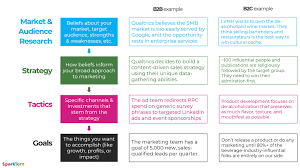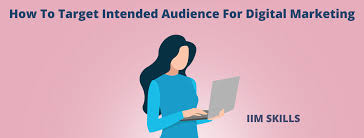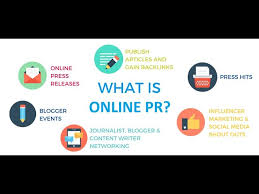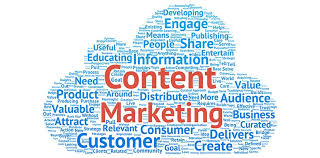Mastering Strategic Tactics for Success: A Guide to Achieving Your Goals
The Power of Tactics in Achieving Success
In any endeavour, be it business, sports, or personal development, tactics play a crucial role in determining success. Tactics are the specific actions and strategies employed to achieve a particular goal or objective. They are the detailed plans that guide individuals and organisations towards their desired outcomes.
Effective tactics are essential for several reasons. Firstly, they provide a clear roadmap for reaching goals. By breaking down larger objectives into smaller, actionable steps, tactics make complex tasks more manageable and achievable.
Furthermore, tactics help in maximising efficiency and productivity. By identifying the most effective ways to allocate resources, time, and effort, individuals and teams can work smarter, not harder, towards their goals.
Adaptability is another key benefit of employing tactics. In dynamic environments where conditions can change rapidly, having a set of flexible tactics allows for quick adjustments and responses to unforeseen challenges or opportunities.
Moreover, tactics contribute to competitive advantage. By carefully planning and executing strategic moves that outmanoeuvre rivals or exploit market trends, individuals and organisations can gain an edge over their competitors.
Successful implementation of tactics requires a deep understanding of the context in which they will be applied. Factors such as industry trends, market dynamics, competitor behaviour, and internal capabilities must be carefully considered when developing tactical plans.
In conclusion, tactics are powerful tools that can drive success in various aspects of life. Whether aiming to grow a business, achieve personal goals or win a game, the right tactics can make all the difference between mediocrity and excellence.
Understanding Tactics: Common Questions and Their Answers
- What is an example of a tactic?
- What does use tactics mean?
- What is the meaning of tactics?
- What is tactic and example?
- What is the synonym of tactic?
- What is tactics in a sentence?
- What is the meaning of tactics in one word?
- What does using tactics mean?
What is an example of a tactic?
An example of a tactic is the use of targeted advertising on social media platforms to reach a specific audience segment. By creating tailored advertisements based on demographic information, interests, and online behaviour, businesses can effectively engage with potential customers and drive conversions. This tactic allows companies to maximise their marketing budget by focusing resources on reaching individuals who are more likely to be interested in their products or services, ultimately leading to higher ROI and improved marketing performance.
What does use tactics mean?
When people ask, “What does using tactics mean?” they are inquiring about the strategic methods and approaches employed to achieve a specific goal or objective. Tactics involve the deliberate planning and execution of actions that are designed to outmanoeuvre obstacles, exploit opportunities, and ultimately lead to success. Utilising tactics requires a thoughtful consideration of the situation at hand, an understanding of the desired outcome, and the ability to adapt to changing circumstances effectively. In essence, using tactics is about employing strategic moves and actions in a purposeful manner to achieve desired results efficiently and effectively.
What is the meaning of tactics?
Tactics refer to the specific strategies and actions employed to achieve a particular goal or objective. In various fields such as business, sports, and military operations, tactics play a crucial role in determining success. They involve the detailed plans and manoeuvres used to outmanoeuvre competitors, solve problems, or navigate challenges effectively. By breaking down larger goals into actionable steps and adapting to changing circumstances, tactics provide a roadmap for individuals and organisations to achieve their desired outcomes efficiently and strategically.
What is tactic and example?
Tactics refer to the specific actions and strategies employed to achieve a particular goal or objective. In essence, tactics are the detailed plans and manoeuvres that individuals or organisations implement to navigate challenges and reach desired outcomes efficiently. An example of a tactic could be a retail store offering limited-time discounts to drive foot traffic and boost sales during a slow period. By strategically using this tactic, the store aims to attract more customers and increase revenue within a specific timeframe, showcasing how tactics can be tailored to address specific needs and objectives effectively.
What is the synonym of tactic?
When exploring the concept of tactics, a common query often arises: “What is the synonym of tactic?” In the realm of strategy and planning, tactics are closely related to terms such as strategy, approach, manoeuvre, method, or scheme. These synonyms allude to the specific actions and techniques employed to achieve a desired outcome, highlighting the nuanced yet interconnected nature of tactical decision-making in various contexts.
What is tactics in a sentence?
Tactics can be defined as the specific strategies and actions employed to achieve a particular goal or objective, encompassing the detailed plans and manoeuvres used to navigate challenges and opportunities effectively.
What is the meaning of tactics in one word?
In a single word, tactics can be defined as “strategy.” Tactics refer to the specific actions and manoeuvres employed within a broader strategic framework to achieve a desired goal or outcome. By focusing on the detailed plans and methods used to implement strategic decisions, tactics play a crucial role in determining success in various endeavours.
What does using tactics mean?
Using tactics involves the strategic deployment of specific actions and strategies to achieve a desired goal or outcome. Tactics are the detailed plans and manoeuvres employed to navigate challenges, exploit opportunities, and outmanoeuvre competitors in various contexts such as business, sports, or personal development. By utilising tactics effectively, individuals and organisations can enhance their chances of success by carefully planning and executing actions that align with their objectives and adapt to changing circumstances. In essence, using tactics means employing a thoughtful and calculated approach to achieve desired results in a strategic manner.











